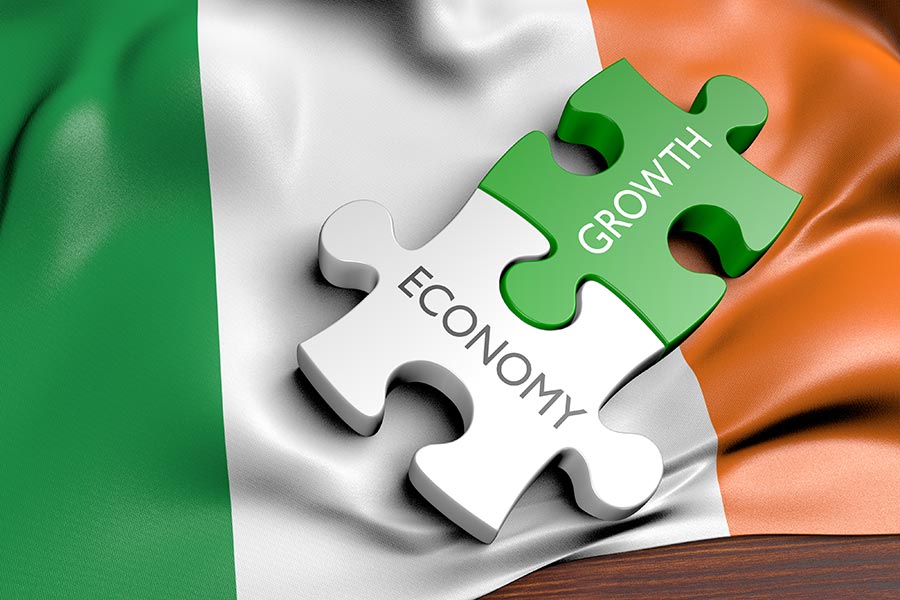Davy has said the Irish economy is well placed to cope with the brunt of US President Donald Trump's tariffs but warned they may trigger a global economic slowdown.
In their latest report, Davy says the rising uncertainty created by the tariffs could lead to a recession in the US and will almost certainly have negative global implications.
One area likely to impact Ireland most was the possibility of a reduction in foreign direct investment (FDI).
Even still, the report notes the Irish economy had in the past shown remarkable resilience against major external shocks such as Brexit and Covid-19.
"With remarkably favourable structural advantages, including a well-educated workforce and a strong national financial balance sheet, Davy believes the Irish economy is well placed to navigate this latest external shock," it added.
The report also notes that any global slowdown will likely mean smaller tax liabilities for the small number of companies paying the bulk of Ireland's corporation tax.
Figures show that 8.1% of all corporation tax here was paid by just three firms in 2023, while the top 168 FDI tax-paying firms made up only 6.2% of employment and 6.5% of labour income.
Davy said that a Brexit-like phase of negotiations between the EU and the US regarding its new trade policies is now likely.
Brexit showed that progress in these discussions can be very slow, and a firm conclusion can take many years to reach, it added.
Davy also said that the pharmaceuticals and food & beverages sectors may face significant challenges due to potential tariffs.
The report suggests that large pharmaceutical manufacturers are likely to re-arrange their activities somewhat to minimise the impact of the tariffs rather than ceasing their operations in Ireland entirely.
A loss of corporation tax paid by pharmaceutical companies in Ireland looks increasingly likely.
However, this will not necessarily have a corresponding effect on the real economy, measured by national income.
The report further points to significantly higher salaries in the pharmaceutical industry in the US, on average 57% higher than Ireland, not factoring in social contributions and other employment costs.
This means that any reshoring to the US would result in higher prices for consumers, who are already facing relatively high costs for pharmaceutical products.
The report also notes significantly higher salaries in the pharmaceutical industry in the US, on average 57% higher than Ireland, not factoring in social contributions and other employment costs.
On food Davy said there are concerns about the implications of US tariffs for Irish exporters of food and beverages.
Irish whiskey is particularly exposed, with the US representing 41% of its market share.
The stockbrokers said that new markets will need to be sought, and retaliatory action by the EU against imports of US bourbon may provide some scope for EU import substitution.

But Davy said it believes the country needs to focus on internal risks such as the failure to "meaningfully" address major housing and infrastructure shortfalls.
"While the tariff threats pose significant challenges, Ireland's economy is well-positioned to navigate these external shocks. Our focus should remain on addressing domestic issues such as housing and infrastructure to ensure continued economic growth," Kevin Timoney, Davy's chief economist, said.










